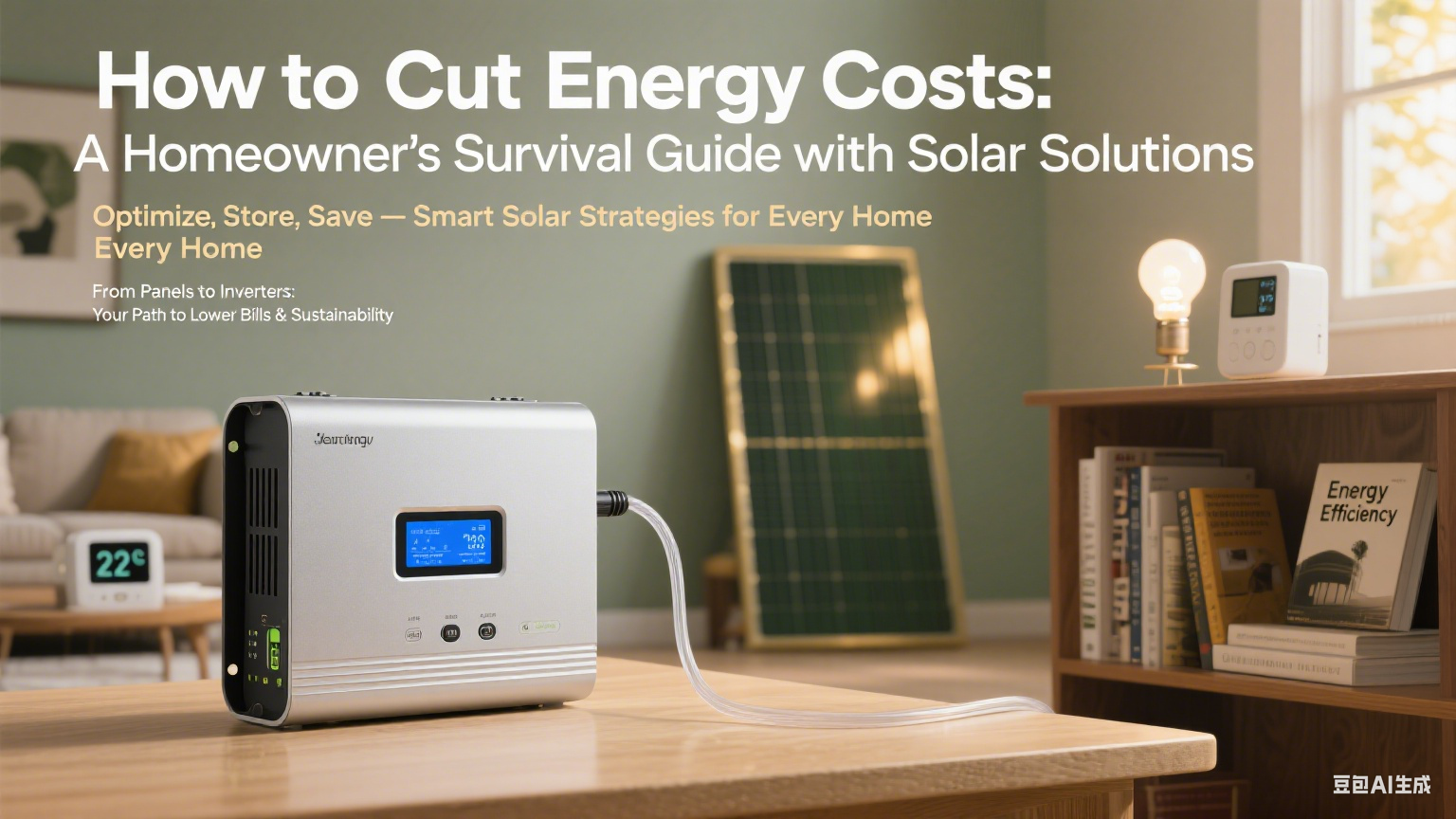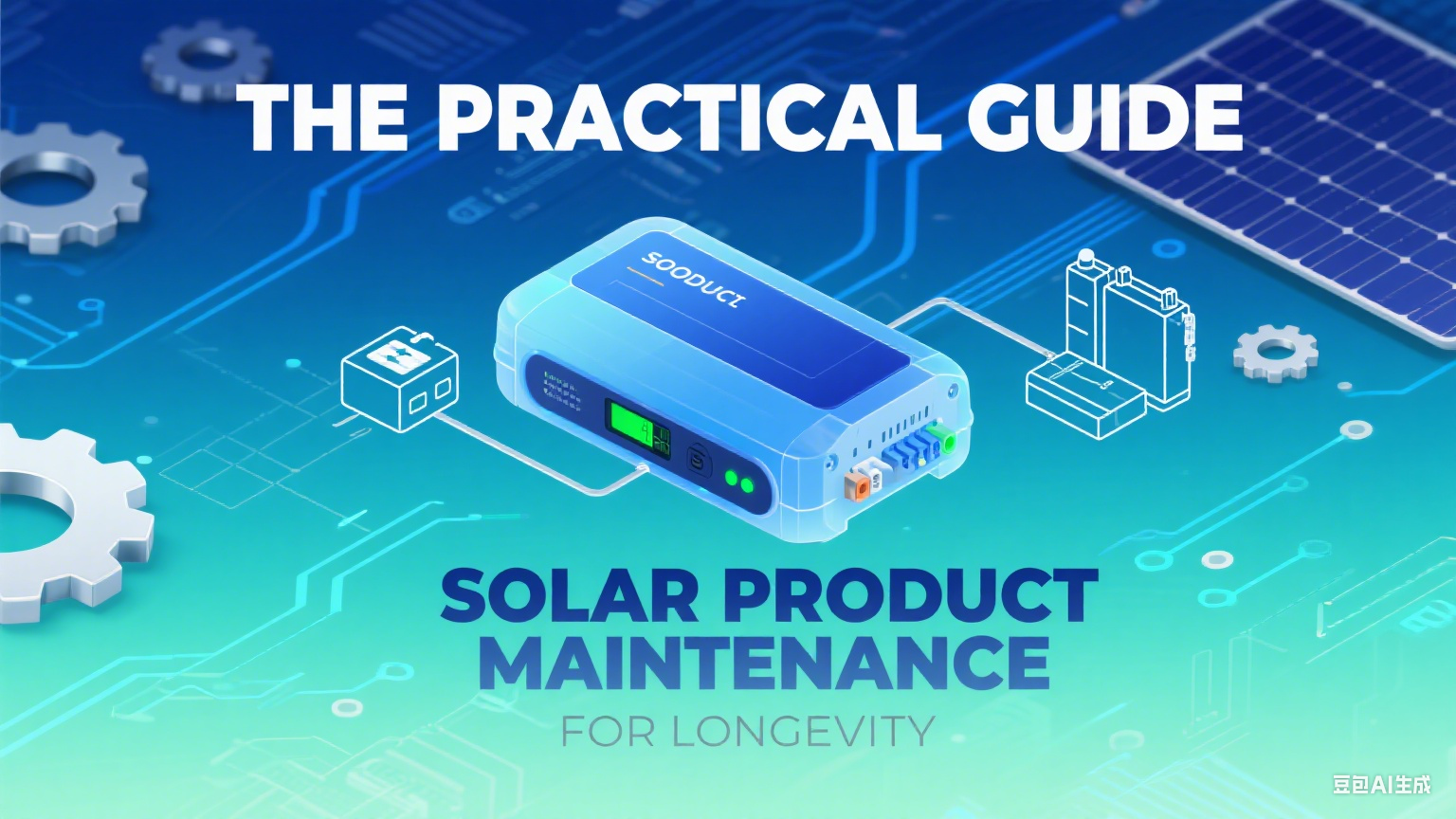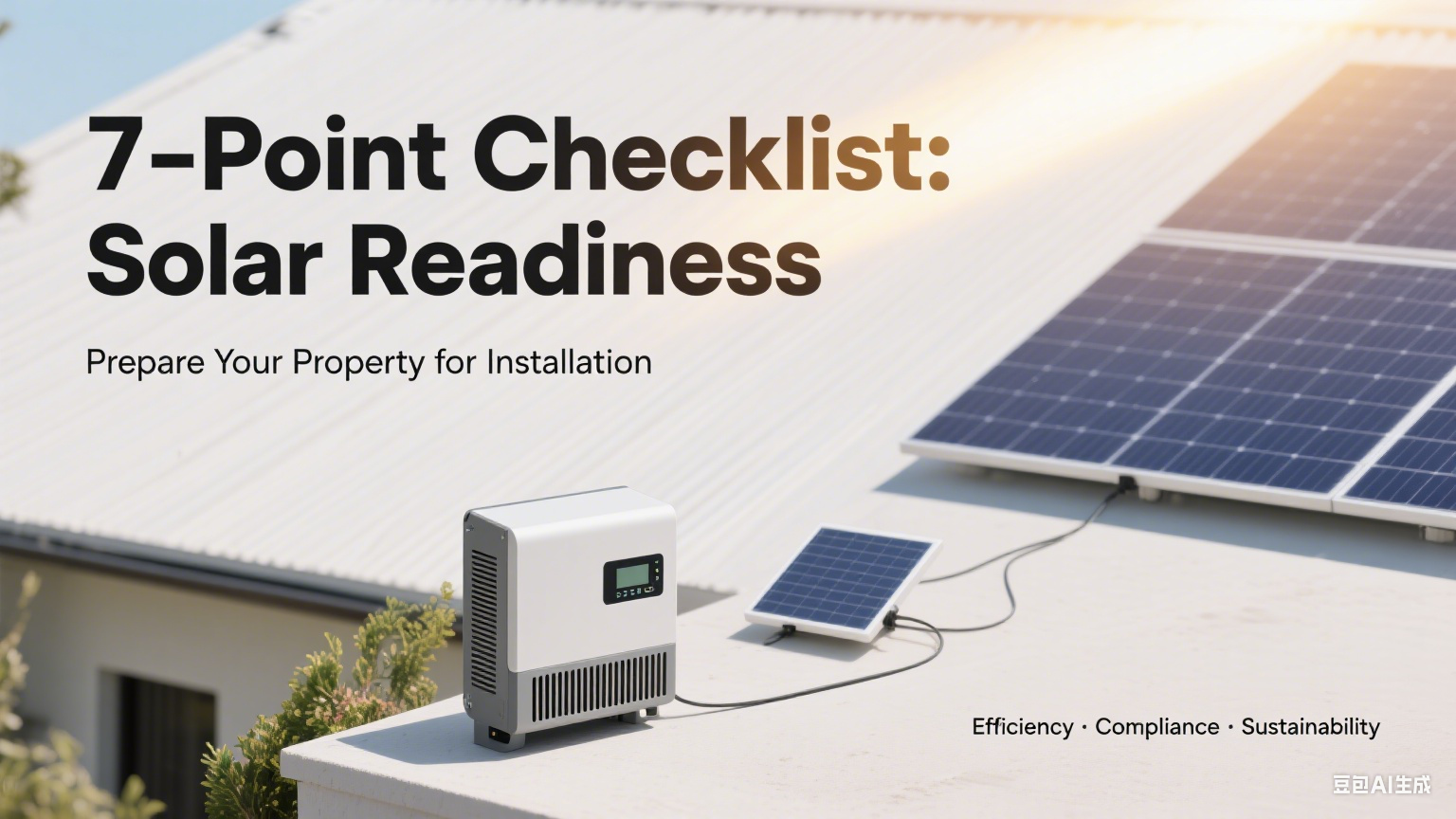Why It's Absolutely Okay to Switch to Solar Power at Your Own Pace
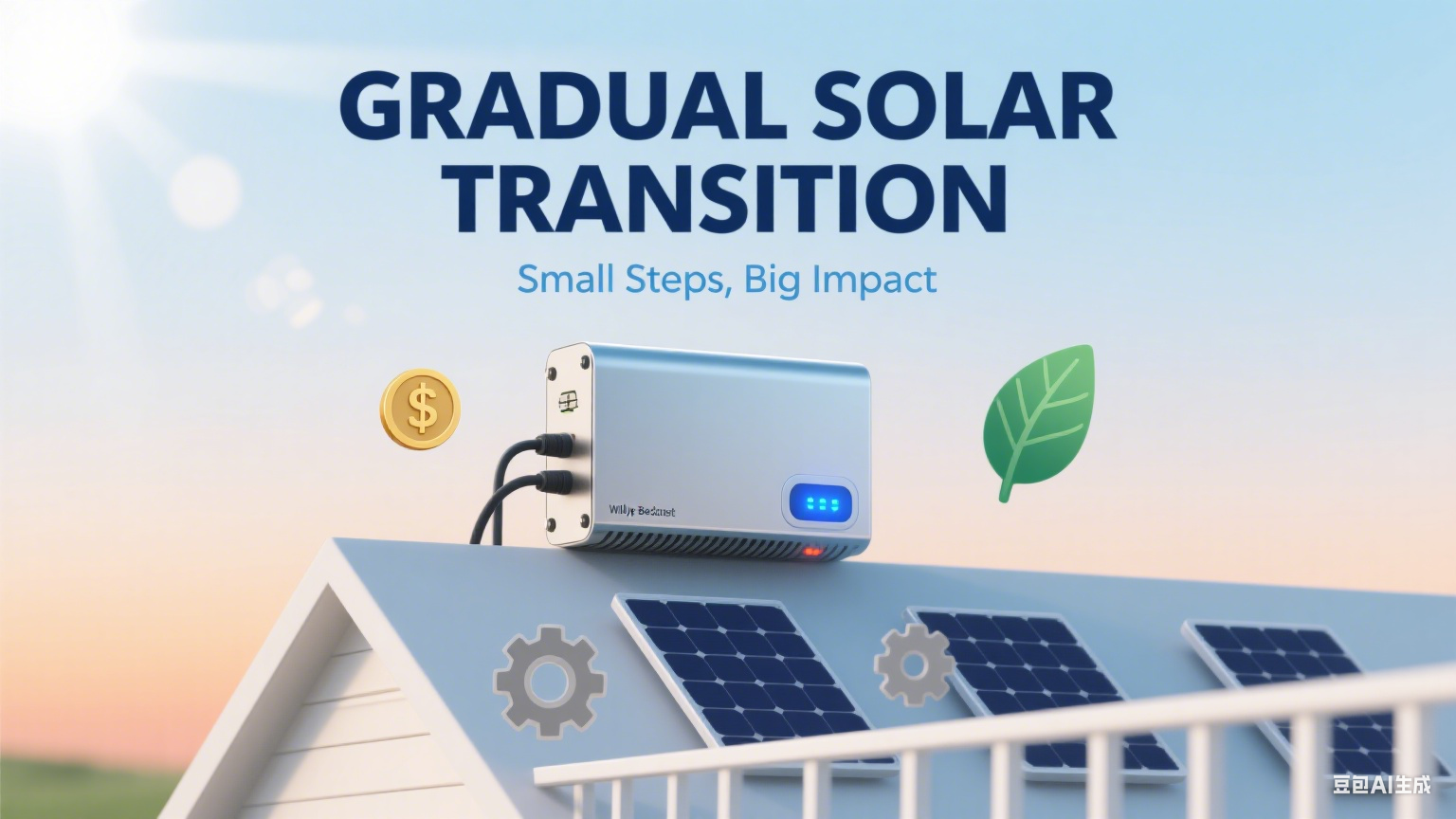
Introduction
The transition to solar power is a significant step towards a more sustainable and cost-effective energy solution. However, the journey to solar power doesn't have to be an all-or-nothing approach. Many homeowners and businesses find that transitioning at their own pace is not only practical but also beneficial. This article explores why it's perfectly fine—and even advantageous—to switch to solar power gradually.
| Reason | Key Points |
|---|---|
| Financial Flexibility | - Spreads upfront costs over time, easing financial strain. - Pay incrementally (small system first, expand later) suits tight budgets. - Even small systems generate immediate savings, with ROI growing as the system expands. |
| Customization & Scalability | - Tailors the system to unique energy needs (start with essentials, add later). - Allows adoption of new solar tech advancements, keeping the system up-to-date. |
| Learning & Adaptation | - Starts small to familiarize with solar tech and resolve issues before expanding. - Enables testing of different components (panels, inverters) to find the best fit. |
| Reduced Pressure & Stress | - Avoids overwhelm from large-scale transitions by taking incremental steps. - Makes adapting to new routines/tech more comfortable. |
| Environmental Impact | - Small systems immediately reduce carbon footprints. - Gradual progress builds long-term sustainability without compromising finances. |
| Flexibility & Control | - Adapts to changing energy needs (e.g., life changes) without being locked into a rigid system. - Lets you expand when it makes sense, keeping you in control of your energy future. |
1. Financial Flexibility
1.1 Initial Costs
One of the primary concerns for many when considering solar power is the initial investment. Solar panels, inverters, and battery storage systems can be expensive upfront. By transitioning gradually, you can spread out these costs over time, making the transition more financially manageable.
1.2 Pay-As-You-Go
Starting with a smaller system and expanding as needed allows you to pay for your solar investment incrementally. This approach can be particularly beneficial for those on a tight budget, as it reduces the financial strain of a large upfront purchase.
1.3 Return on Investment (ROI)
Even a small solar system can start generating savings immediately. As you gradually expand your system, you'll continue to see increased savings on your energy bills, providing a tangible return on your investment.
2. Customization and Scalability
2.1 Tailored Solutions
Every home and business has unique energy needs. By transitioning to solar power at your own pace, you can customize your system to meet your specific requirements. Start with the essentials and add components as your energy demands grow.
2.2 Future-Proofing
Technology in the solar industry is constantly evolving. Gradually transitioning allows you to take advantage of new advancements and incorporate them into your system as they become available. This ensures your solar setup remains up-to-date and efficient.
3. Learning and Adaptation
3.1 Familiarization
Switching to solar power involves learning about new technologies and understanding how they integrate with your existing energy infrastructure. Starting small gives you the opportunity to familiarize yourself with your system, identify any issues, and make necessary adjustments before expanding.
3.2 Experimentation
A gradual transition allows you to experiment with different configurations and components. You can test various types of solar panels, inverters, and storage solutions to determine what works best for your specific situation.
4. Reduced Pressure and Stress
4.1 Avoiding Overwhelm
The process of switching to solar power can be complex and overwhelming, especially if you're doing it all at once. By taking it one step at a time, you can reduce the stress and pressure associated with a large-scale transition.
4.2 Incremental Changes
Making incremental changes allows you to adapt to new routines and technologies more comfortably. This approach ensures a smoother transition and helps you maintain control over the process.
5. Environmental Impact
5.1 Immediate Benefits
Even a small solar system can have a positive impact on the environment. By starting now and gradually increasing your solar capacity, you can begin reducing your carbon footprint immediately.
5.2 Long-Term Sustainability
Every step towards solar power contributes to a more sustainable future. Gradual transitions ensure that you're making progress without compromising your financial stability or overwhelming yourself with the process.
6. Flexibility and Control
6.1 Adapt to Changes
Life is unpredictable, and your energy needs may change over time. A gradual transition allows you to adapt your solar system to accommodate these changes without committing to a large, inflexible system upfront.
6.2 Maintain Control
Taking things at your own pace gives you the freedom to make decisions based on your current situation and future goals. You can expand your system when it makes sense for you, ensuring that you remain in control of your energy future.
Conclusion
Switching to solar power at your own pace is not only acceptable but also highly beneficial. It offers financial flexibility, customization, reduced stress, and immediate environmental benefits. By starting small and gradually expanding your solar system, you can achieve energy independence while maintaining control over your transition. Remember, every step towards solar power, no matter how small, is a step in the right direction. Embrace the journey and enjoy the long-term benefits of a sustainable, cost-effective energy solution.
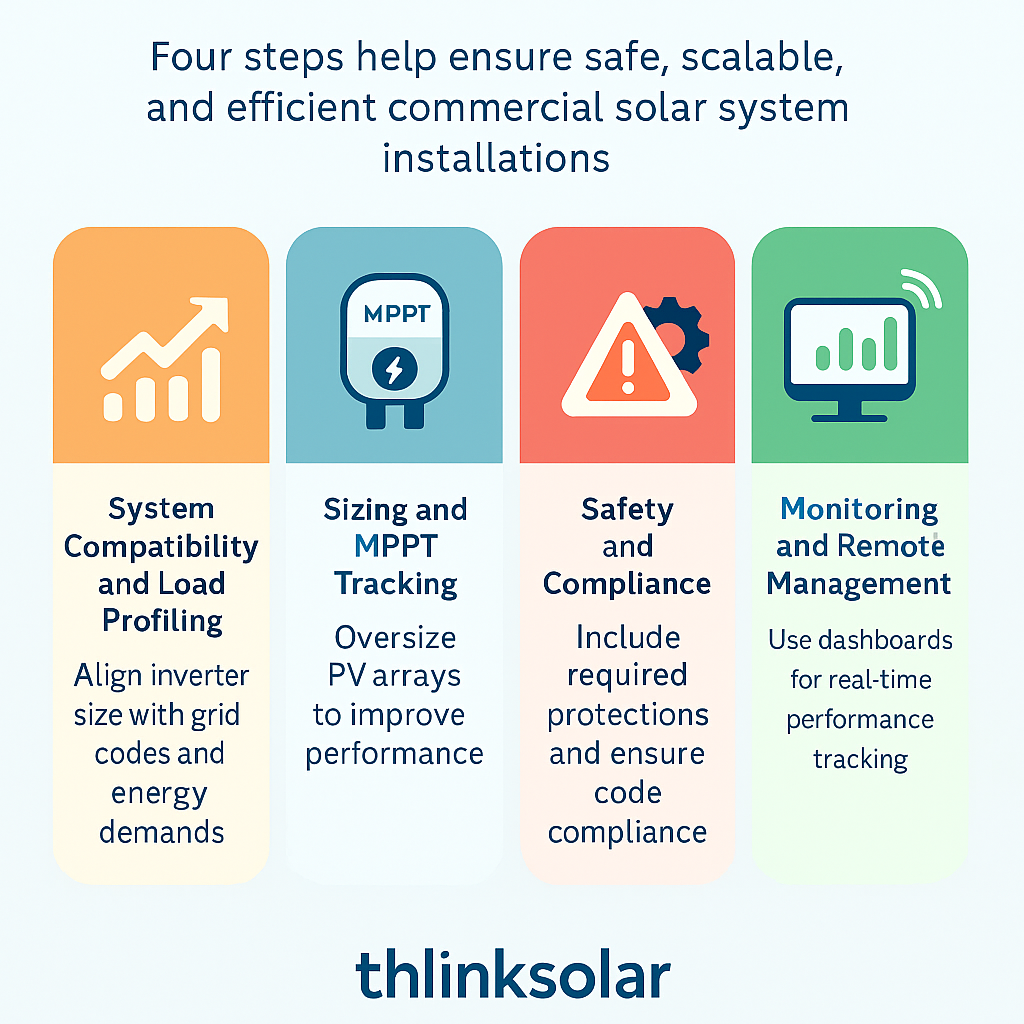
For more information on photovoltaic technology, please visithttps://youtu.be/JB56vgBNr6E?si=48ZjW1I9exvg7s-o for detailed content.

